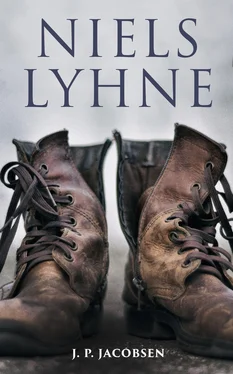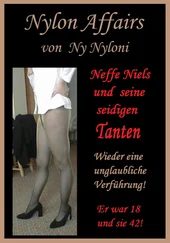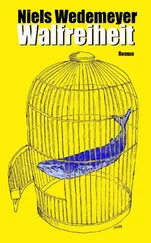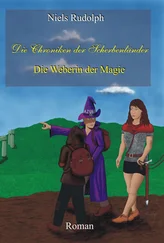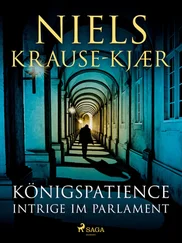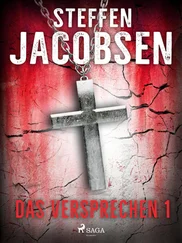J. P. Jacobsen - Niels Lyhne
Здесь есть возможность читать онлайн «J. P. Jacobsen - Niels Lyhne» — ознакомительный отрывок электронной книги совершенно бесплатно, а после прочтения отрывка купить полную версию. В некоторых случаях можно слушать аудио, скачать через торрент в формате fb2 и присутствует краткое содержание. Жанр: unrecognised, на английском языке. Описание произведения, (предисловие) а так же отзывы посетителей доступны на портале библиотеки ЛибКат.
- Название:Niels Lyhne
- Автор:
- Жанр:
- Год:неизвестен
- ISBN:нет данных
- Рейтинг книги:4 / 5. Голосов: 1
-
Избранное:Добавить в избранное
- Отзывы:
-
Ваша оценка:
- 80
- 1
- 2
- 3
- 4
- 5
Niels Lyhne: краткое содержание, описание и аннотация
Предлагаем к чтению аннотацию, описание, краткое содержание или предисловие (зависит от того, что написал сам автор книги «Niels Lyhne»). Если вы не нашли необходимую информацию о книге — напишите в комментариях, мы постараемся отыскать её.
Niels Lyhne — читать онлайн ознакомительный отрывок
Ниже представлен текст книги, разбитый по страницам. Система сохранения места последней прочитанной страницы, позволяет с удобством читать онлайн бесплатно книгу «Niels Lyhne», без необходимости каждый раз заново искать на чём Вы остановились. Поставьте закладку, и сможете в любой момент перейти на страницу, на которой закончили чтение.
Интервал:
Закладка:
There was no one she could talk to. No one of them all ever caught just the shade of meaning that was the essence of what she said. Of course, they understood her after a fashion, inasmuch as she spoke Danish, but it was in a dull, general sort of a way, just as they might have understood a foreign language which they heard only once in a while. They never had the slightest idea of whom or what was meant by a particular intonation of a word, never dreamed that such a little phrase was a quotation, or that another, used in just such a way, was a new variation of a popular witticism. As for their own speech, it had a decent leanness through which one could positively feel the grammatical ribs, and the words were used with a literalness as if they had just come fresh from the columns of the dictionary. Even the way they said Copenhagen! Sometimes with a mysterious emphasis, as if it were a place where people ate little children; then again with a far-away expression, as if they were speaking of a town in central Africa, or in a festive voice tremulous with history, as they might have said Nineveh or Carthage. The pastor always said Axelstead with a reminiscent rapture, as if it had been the name of one of his old sweethearts. Not one of them could say Copenhagen so that it meant the city stretching from Vesterport to the Custom House on both sides of Östergade and Kongens Nytorv. And so it was with all they said and all they did.
There was not a thing at Lönborggaard that did not displease her; these mealtimes regulated by the sun, this smell of lavender in chests and presses, these Spartan chairs, all these provincial pieces of furniture that stood shrinking against the walls as if they were afraid of people! Even the very air was distasteful to her; she could never take a walk without bringing home a robust perfume of meadow-hay and wild flowers, as if she had been locked up in a haymarket.
And then to be called aunt, Aunt Edele. How it grated on her ears! She got used to it after a while, but in the beginning it made the relation between her and Niels rather cool.
Niels didn’t care.
Then came a Sunday in the early part of August, when Lyhne and his wife had gone out in the carriage to pay a visit, and Niels and Miss Edele were home alone. In the morning Edele had asked Niels to pick some corn-flowers for her, but he had forgotten it. Suddenly, in the afternoon, as he was walking with Frithjof, he remembered, gathered a bouquet, and ran up to the house with it.
Everything was so still that he imagined his aunt must be asleep, and crept silently through the house. At the threshold of the sitting-room he stopped, with bated breath, preparing to approach Edele’s door. The sitting-room was flooded with sunshine, and a blossoming oleander made the air heavy with its sweet fragrance. There was no sound except a muffled splash from the flower-stand whenever the goldfish moved in their glass dish.
Niels crossed the room, balancing himself with outstretched arms, his tongue between his teeth. Cautiously he grasped the door-knob, which was so hot with the sun that it burned his hand, and turned it slowly and carefully, knitting his brows and half closing his eyes. He pulled the door toward him, bent in through the narrow opening, and laid the flowers on a chair just within. The room was dark as if the shades were down, and the air seemed moist with fragrance, the fragrance of attar of roses. As he stooped, he saw only the light straw matting on the floor, the wainscoting under the window, and the lacquered foot of a Gueridon; but when he straightened himself to back out of the door, he caught sight of his aunt.
She was stretched full-length on a couch of sea-green satin, dressed in a fanciful gypsy costume. As she lay on her back, chin up, throat tense, and forehead low, her loosened hair flowed down over the end of the couch and along the rug. An artificial pomegranate flower looked as if it had been washed ashore on an island made by a little bronze-colored shoe in the midst of the dull golden stream.
The motley colors of her dress were rich and mellow. Dull blue, pale rose, gray, and orange were blended in the pattern of a little low-cut bodice of a thick, lustreless stuff. Underneath, she wore a white silk chemise with wide sleeves falling to the elbow. The white had a faint pinkish tone, and was shot with threads of reddish gold. Her skirt of pansy-colored velvet without any border was gathered loosely around her, and slid down over the side of the couch in slanting folds. Her feet and legs were bare, and around her crossed ankles she had wound a necklace of pale corals. An open fan was lying on the floor, showing its pattern of playing-cards arranged in a wheel, and a little farther away a pair of leaf-brown silk stockings had been thrown, one partly rolled up, the other spread out and revealing the red clock.
At the same moment that Niels caught sight of her, she saw him. Involuntarily she made a slight movement as if to rise, but checked herself and lay still as before, only turning her head a little to look at the boy with a questioning smile.
“I brought these,” he said, and went over to her with the flowers.
She held out her hand, glanced at them and then at her costume, comparing the colors, and dropped them with a wearily murmured “Impossible!”
Niels would have picked them up, but she stopped him with a motion of her hand.
“Give me that!” she said, pointing to a red flask that lay on a crumpled handkerchief at her feet.
Niels went to take it. His face was crimson, as he bent over the milk-white, gently rounded legs and the long, slender feet, which had almost the intelligence of a hand in their fine flexible curves. He felt dizzy, and when one foot suddenly turned and bent downward with a quick movement, he almost fell.
“Where did you pick the flowers?” Edele asked.
Niels pulled himself together and turned toward her. “I picked them in the pastor’s rye-field,” he said, in a voice that sounded strange to himself. He handed her the flask without looking up.
Edele noticed his emotion and looked at him astonished. Suddenly she blushed, raised herself on one arm, and drew her feet under her petticoat. “Go, go, go, go!” she said, half peevishly, half shyly, and at every word she sprayed him with the attar of roses.
Niels went. When he was out of the room, she let her feet glide slowly down from the couch and looked at them curiously.
Running with unsteady steps, he hurried through the house to his own room. He felt quite stunned; there was a strange weakness in his knees and a choking sensation in his throat. He threw himself down on the couch and closed his eyes, but it was of no avail, a strange restlessness possessed him; his breath came heavily as in fear, and the light tortured him in spite of his closed eyelids.
Little by little a change came over him. A hot, heavy breath seemed to blow on him and make him helplessly weak. He felt as one in a dream who hears some one calling and tries to go, but cannot move a foot, and is tortured by his weakness, sickens with his longing to get away, is lashed to madness by this calling which does not know one is bound. And he sighed impatiently as if he were ill and looked around quite lost. Never had he felt so miserable, so lonely, so forsaken, and so forlorn.
He sat down in the flood of sunlight from the window, and wept.
From that day Niels felt a timid happiness in Edele’s presence. She was no more a human being like any one else, but an exalted creature, divine by virtue of her strange, mystic beauty. His heart throbbed with rapture in merely looking at her, kneeling to her in his heart, crawling to her feet in abject self-effacement. Yet there were moments when his adoration had to have vent in outward signs of subjection. At such times he would lie in wait for a chance to steal into Edele’s room and go through a fixed rite of a certain interminable number of kisses lavished on the little rug in front of her bed, her shoe, or any other object that presented itself to his idolatry.
Читать дальшеИнтервал:
Закладка:
Похожие книги на «Niels Lyhne»
Представляем Вашему вниманию похожие книги на «Niels Lyhne» списком для выбора. Мы отобрали схожую по названию и смыслу литературу в надежде предоставить читателям больше вариантов отыскать новые, интересные, ещё непрочитанные произведения.
Обсуждение, отзывы о книге «Niels Lyhne» и просто собственные мнения читателей. Оставьте ваши комментарии, напишите, что Вы думаете о произведении, его смысле или главных героях. Укажите что конкретно понравилось, а что нет, и почему Вы так считаете.
